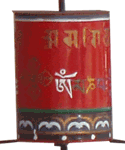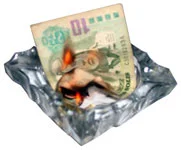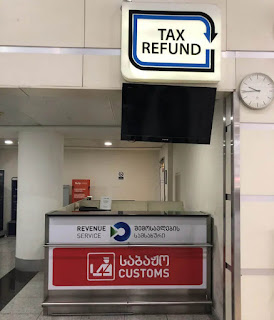Travelling to holy and mysterious Tibet
Travelling to Tibet by the new Qinghai-Tibet railway was awesome and easy. No notorious travel permits were needed. Tibet itself with its mountainous scenery and minority people reminded us of Bolivia, which we love, except that it was way more touristy. Still, at least the train trip was worthwhile.
Our train trip started from Lanzhou, China. Originally we had tickets to Golmud only, where we intended to stop, but as we entered the train we discovered that it will go all the way to Lhasa. So we extended our tickets in the train without hassle. No-one asked for any travel permits.
We were a bit skeptical of permit scams after reading our U.S.-made travel guide. That information as well as the U.S. originated tells about dangerous Chinese toys, fake medicines, and toxic food turned out to be propaganda against China. Our Chinese visas were valid in Tibet and nobody wanted to cancel them or force us to buy any tours.
Train tickets to Lhasa were reasonably priced, just like all other trains in China. The scenery, however, was superior to any other route. It was as astonishing as in Bolivian highlands with snow topped mountains, clearwater rivers, and lakes. The whole trip was actually a sightseeing. The train stopped in important places so that people could take photos. There were announcements in English about the sites and an LCD-screen keeping passengers up-to-date about time, speed, and altitude. The train was a normal K-type train except that it had blue covers on the seats and oxygen outlets for altitude sickness. Nobody seemed to suffer, though. The highest point during the trip was some 5.000 meters, but we felt no symptoms either.
Reality bites
Lhasa's train station is huge and megalomaniac as you can expect in China. In front of the station a horde of taxi drivers and hotel touts attacked us. It was like an omen of what to come. We dodged them and headed to the city by bus. Finding an accommodation should have been easy as it was the golden week in China. Everyone is on holiday and head to Beijing while the rest of the country suffers from lack of business travellers. We discovered, however, that nobody had informed Tibetans. The first two hotels asked prices eight times more than in Hohhot. Finally, after some walking, we found an acceptable deal and decided to sleep and make love before continuing our walk to the city centre.
When we arrived in the major tourist area the next day, we discovered the other face of Tibet. We saw some 30 Westerners and hundreds of Chinese tourists, and even more rickshaws and taxis. The main street was surrounded by Western boutique shops like Vero Moda, Only, and Jack & Jones. The holiest places, the palace of Potala and the temple of Jokhang, were crowded with paying customers wanting to earn some badly needed karma points. Here's a tip how to proceed in another way: If you give away all of your valuables to the first beggar that approaches you, you can earn the maximum amount of Karma points. But you'd better watch out for not getting too many points as you might end up being a beggar or a dog in the next life, or in the worst case gain enlightenment and loose interest in all possessions that possess you. Well, this is just to say that Tibet seems to be a holy and mysterious country only for those who worship money. Tibetans are not the only ones to blame. According to our travel guide, China is pocketing all the entrance fees.
Our first contact with religious moneymaking was in Brazil, where Catholic church tried to charge entrance fees. After that we started to avoid all kinds of holy sites. We skipped Buddhist temples in Thailand selling good luck amulets and foot massage, and worshiping the photos of King Bumiphol. Temples and monasteries charging money for entrance or stay are mere businesses.
If you have a compulsory need to visit Tibet, prepare yourself for a theme-park -like experience. Another possibility is to choose consciously a Tibetan shopping tour instead of the Yuan-pilgrimage. If Buddha was dead, he would turn in his grave for every pilgrim travelling to Tibet.

A spiritual journey
Päivi came up with a brand new business idea in Tibet. Both in the train and in Lhasa there were people who were taking photos of Santeri, or who wanted to have a photo taken of themselves with him. Santeri must have been the only white, hairy ape from Finland around, so Päivi could easily have charged 50 or even 5000 Yuan for a photo. What a business opportunity! That would have made her also truly spiritual according to the holiness standards of the Chinese Tibet.
Santeri the star was actually not at his best for a week before coming to Tibet. He felt like his body was giving up and had continuous aches. We figured out that maybe it was because of the lack of vitamin B12. Santeri's diet has been strictly vegetarian for quite some time. We went to a pharmacy and managed to buy some pills that worked like magic. Our Chinese was not enough to find out if any animals had been killed for making those pills. Hope not, as Santeri feels that the life of his body is not worth killing any living beings.

You can make your own spiritual journey by spinning the virtual prayer wheel on the right. The price is ten units of your currency per minute. If you are in Europe, it's 10 €, in the U.S. 10 $, and in Japan 10 Yen. It is less than 0.01 units/prayer. What a bargain! If your country has only bigger notes, take whatever bill you have. This is how to do it: place the note on an ashtray, light it up, and wait until it's fully burned. Then you can move your mouse on top of the wheel and start praying. The prayer inside is asking God to make all money and possessions in the world vanish to liberate us.
Freedom for Tibet?
We wish all the best to Tibetans. We had earlier read about their struggle against Chinese oppression and it seemed to us that China was attempting to turn the country into a Disneyland with the holiest sites and mysterious yaks for making money. The current situation is, however, not only negative but also an opportunity. China has a unique possibility to demonstrate to other countries that it respects human rights and minorities especially now when the Olympics are near and the whole world is watching China. Can there be any financial or military reasons for clinging on to such a remote and expensive piece of wasteland? Tibetans, on the other hand, could help Chinese to save their face and start offering an authentic, mysterious, and holy travel destination for the numerous Chinese tourists pouring in. Not just faking to do so.
Why Dalai Lama does not return to Tibet? If he would first give up his power and possessions, and then return to the Buddhist way, there should not be any reason to prevent him from coming back, should there? The question remains whether he wants to return from the riches to the cold and poor Tibet or not.
Some food for thought: when you walk, all countries will be at your feet. And without fences grass could be greener everywhere.










Comments
I also feel your comments on the Dalai Lama to be extremely mis informed and juvenile.
Unfortunately we lack the faith you possess and fail to see the matter in such informed and non-juvenile way like you do.
However, the good thing is that know the real truth in this matter. Would you care to share it with us?